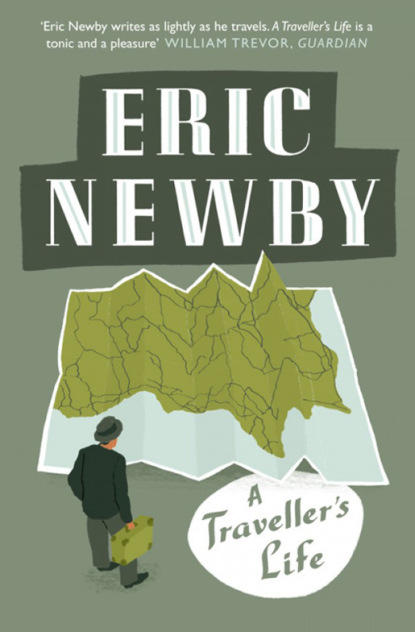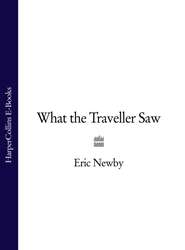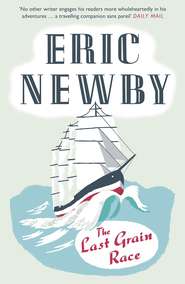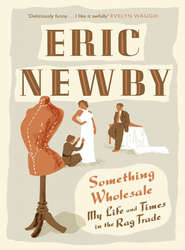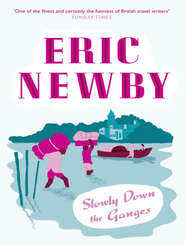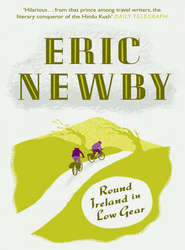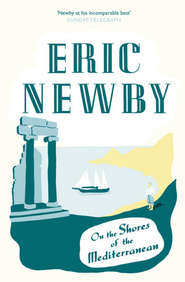По всем вопросам обращайтесь на: info@litportal.ru
(©) 2003-2024.
✖
A Traveller’s Life
Автор
Год написания книги
2018
Настройки чтения
Размер шрифта
Высота строк
Поля
Also by the Author (#litres_trial_promo)
Plates (#litres_trial_promo)
Copyright (#litres_trial_promo)
About the Publisher (#litres_trial_promo)
List of Illustrations (#ulink_ad99cd53-8a79-5b25-b0b1-a144a924ef7e)
The traveller in his pram (#litres_trial_promo)
My mother in our Napier car (#litres_trial_promo)
My first unaccompanied travels (#litres_trial_promo)
A mystery tour by charabanc (#litres_trial_promo)
Storm in the Southern Ocean (#litres_trial_promo)
Washing up in the port fo’c’sle (#litres_trial_promo)
Wanda aged eighteen (#litres_trial_promo)
On the run in Italy during the war (#litres_trial_promo)
Myself aged twenty-three (#litres_trial_promo)
Constantinople in the 1830s (#litres_trial_promo)
Myself as fashion buyer, with Katharine Whitehorn (Desmond O’Neill) (#litres_trial_promo)
On the island of Fara, Scapa Flow (#litres_trial_promo)
Wanda descending the Ganges (#litres_trial_promo)
Seen from the Istanbul Express, Bulgaria (#litres_trial_promo)
Sheikh Ayid Awad Zalabin in Wadi Rumm (#litres_trial_promo)
In the Pera Palace Hotel, Istanbul (Wanda Newby) (#litres_trial_promo)
Myself relaxing at the Pera Palace Hotel (#litres_trial_promo)
Bicycling from the Wash to Wimbledon (Chris Smith) (#litres_trial_promo)
St Katharine’s Monastery, Mount Sinai (#litres_trial_promo)
The favourite wife of Sheikh el Sheikh Abu Abdullah of the Umzeini Bedu (Wanda Newby) (#litres_trial_promo)
Introduction (#ulink_cd9f69f0-2fac-5ac9-bfac-70e7f7a466c4)
This book is not an autobiography. It concerns itself for the most part, as the title suggests, with my life as a traveller in however modest a fashion from the time I was born more than sixty years ago.
Some of these travels were in distant places, in what used to be referred to as ‘foreign parts’. But this is by no means true of all of them, and some of them were very near home indeed, for I agree with Ogden Nash’s more or less unassailable definition of what constitutes a foreigner and what is a foreign part:
The place you’re at
Is your habitat.
Everywhere else you’re a foreigner.
If you can bring yourself to believe this, it takes a lot of the sting out of the cost of travel; and it is why I felt it reasonable to include my journeys through Harrods – a strange early adventure which befell me and my somewhat oversexed nurse while she was propelling me in a baby carriage through a London suburb – as well as an account of some equally bizarre excursions into the underworld of the London sewers by night while working as a fashion buyer of dresses, retailing at ten guineas and upwards, for a chain of department stores during the day.
The somewhat episodic nature of the book is because one cannot continue going round the world for ever without intermissions in which one tries to make money, licks one’s wounds, and re-equips oneself for further ventures. Even a traveller such as the Arab Ibn Battuta, born at Tangier in 1304 – perhaps the greatest traveller of all time who, in the course of his life, was estimated to have covered seventy-five thousand miles not counting detours, the only medieval traveller who is known to have visited the lands of every Muhammedan ruler of his time, quite apart from such infidel countries as Ceylon and China – was not always on the go, taking time off to get married here and there or to act as a counsellor of moderation to a mad potentate. In fact, travellers such as those who go into orbit and fail to come out of it, or travellers like the Jew who spat at Christ at the crucifixion and was condemned to wander the world for ever, can only be regarded as exceptionally unfortunate.
In his writings, the Venerable Bede compared the span of human life to coming out of darkness into a lighted hall and, having reached the end of it, finding oneself under the necessity of setting off once more into the all-embracing gloom. To me life has been more like one of those sections of autostrada on the Italian Riviera, on which there are lots of tunnels, some long, some short, with sunlit open spaces of varying lengths between them for which the darkness leaves one temporarily dazzled and often unprepared.
Why do people travel? To escape their creditors. To find a warmer or cooler clime. To sell Coca-Cola to the Chinese. To find out what is over the seas, over the hills and far away, round the corner, over the garden wall – with a ladder and some glasses you could see to Hackney Marshes if it wasn’t for the houses in between, in the words of the old music hall song, the writer of which one feels was about to take off.
Why have I travelled? Difficult to answer, that is when not engaged in the equivalent of selling Coca-Cola to the Chinese (large size dresses in Leeds), or travelling as a sailor or a soldier. Partly, undoubtedly, for amusement and sheer curiosity and partly, as Evelyn Waugh wrote in the preface to a book I wrote which described a journey through the Hindu Kush, to satisfy ‘the longing, romantic, reasonless, which lies deep in the hearts of most Englishmen, to shun the celebrated spectacles of the tourist and, without any concern with science or politics or commerce, simply to set their feet where few civilized feet have trod’.
CHAPTER ONE Birth of a Traveller (#ulink_ee728953-5968-5787-861d-70f58d92332c)
(December 1919) (#ulink_ee728953-5968-5787-861d-70f58d92332c)
BIRTHS, MARRIAGES, DEATHS BIRTHS
NEWBY. – On the 6th December at 3 Castelnau Mansions, Barnes, SW13, to Hilda Newby, wife of Geo. A. Newby – a son.
In this extravagant fashion – altogether it cost 50p ($1.95),
(#ulink_d994990a-3441-590b-ad23-8b6a0c2e3880) at a time when Lady Secretaries with shorthand and typing were earning around £3.50 ($13.65) a week – my arrival was announced on the following Tuesday, 9 December, in The Times and the Daily Telegraph, two of the daily newspapers my father ‘took in’ at that period. The other was the Daily Mirror, then a rather genteel paper, which he ordered for my mother, but never looked at himself, and which she passed on to the cook/housekeeper when she had finished with it. From then on it was also passed on to a nurse.
As an event my birthday can scarcely be said to have been one of great consequence except to my parents, their relatives and friends. What is perhaps more interesting, and I hope the reader may think so too, is what sort of day that now far-off Saturday in December 1919 turned out to be, and what was going on in the world beyond the windows of that first-floor flat in which I was born facing the Metropolitan Waterboard’s reservoirs and filter beds by the Thames on the Surrey side of Hammersmith Bridge.
At 3.45 a.m., the ghastly hour I chose, or rather the doctor chose, for my arrival – I had to be hauled out by the head – conditions must have been pretty beastly in Barnes. It was a dark and stormy night, with a fresh wind from the west whose gusts would have been strong enough to blow clouds of spray from the big reservoir (which was opposite our flat by the bridge and which has now been filled in to make playing fields for St Paul’s School) over the pavement and right across the main road (which was called Castelnau but which all the inhabitants knew and know to this day as Castlenore) as it always did when the wind was strong from that particular quarter, sometimes, but rarely at 3.45 a.m. wetting unwary pedestrians and people travelling in open motor cars.
And it was certainly dark, although the moon had been up for more than thirteen hours and was only a day off full. It would be nice, more romantic, altogether more appropriate for a potential traveller, to think of myself arriving astride the Centaur, and, Sagittarius being in the ascendant, perhaps carrying the latter’s arrows for him, as we moved across a firmament in which ragged clouds were racing across the path of a huge and brilliant moon; but it was not to be. It was ordained that I should be a child not only of darkness but of utter darkness, of ten-tenths cloud.
It was not much of a night for the distinctly grumpy, and, from what I subsequently gathered from my mother, very pompous Harley Street gynaecologist to be out, summoned from his residence in Hampstead to this distant and unfashionable address at 2 a.m. by my father, using the telephone which he had had installed expressly for this contingency. On the other hand, it could have been colder. At 4 a.m. the thermometer at Kensington Palace, a couple of miles away on the other side of Hammersmith Bridge, registered a temperature well above freezing in the 40s Fahrenheit.
This ‘specialist’ subsequently performed an operation on my mother so incompetently and, so far as there was any possibility of her having any more children, so definitively, that years later the operation became the subject of a highly critical article in one of the medical periodicals in which my mother was referred to as Mrs N and the surgeon as Mr X, by which time he was dead and beyond the processes of the Law. That night he travelled to Barnes in what my father described to me when I was old enough to be curious about the circumstances of my birth as ‘an electric brougham’.
The driver of such a machine sat outside, perched high up on a box, fully exposed to the elements – which would have been necessary if he had been driving a horse – while the passengers were accommodated in its leather upholstered and buttoned interior in considerable comfort. And, in fact, the effect produced by one of these contraptions, which looked as if its horse had bolted without it but was still moving forward by the force of gravity, steered by its gloomy, peak-capped driver with a wheel on a vertical column (gloomy because for most of his life he had probably driven horse-drawn broughams and regarded this development as an affront to nature), was highly comical. And when I eventually travelled in an electric brougham, aged five, on a night of thick pea soup fog and torrential rain in December 1924, from my grandparents’ house in Winchester Street, Pimlico, back to Hammersmith Bridge, with my mother and father and an uncle and aunt, all warm and dry and full of food inside, while the driver was drenched with rain and half asphyxiated by fog on the outside, I laughed till I cried, all the way shrieking, ‘He hasn’t got a lid on!’
It was my mother, who was in a position to feel the full force of the specialist’s grumpiness, who told me about it. However, why he was grumpy when he was being paid so highly for something he had contracted to do, and was treated to whisky on his arrival and champagne on my arrival, as well as chicken sandwiches, is not clear. Presumably the nature of his job must have accustomed him to working at odd hours, like lighthouse keepers and policemen. His grumpiness, however, was as nothing compared with that of another telephone subscriber to whose number my father was connected in error before getting through to the specialist, the work of one of the operators at the Hammersmith Exchange, whose fruity ‘SORRRYY YOU’VE BEEN TRRROUBBLED!’ did nothing to convince the wretched man, dragged from his bed at two in the morning, that anyone was sorry at all.
It would not have been much of a night for the homeless poor, their clothes stuffed with newspaper, who slept rough on the towing path down by the river all through my early childhood, and who would certainly have been there that night. Most of them were regulars. Some were terrifying-looking women; some were ‘tramps’, the first ‘real’ travellers I can remember seeing, pointed out by my nurse. But not many of them would have been tramps because most tramps were too solicitous of their personal comfort to share the appallingly draughty, unspeakably filthy but more or less rain-proof camping place used by these unfortunate outcasts, up against the reeking abutments under Hammersmith Bridge, only about fifty yards from where, a boisterous baby, I was now giving tongue. But on this particular night with a high spring tide some time after midnight (high water at London Bridge was at 12.12 a.m.) their pitch would have been a couple of feet under water for an hour or more, and they would have been sleeping among the bushes down towards Putney, or up against the trunks of the huge black poplar trees that grew along the towing path opposite Chiswick Mall further upstream to which normal spring tides did not reach.





